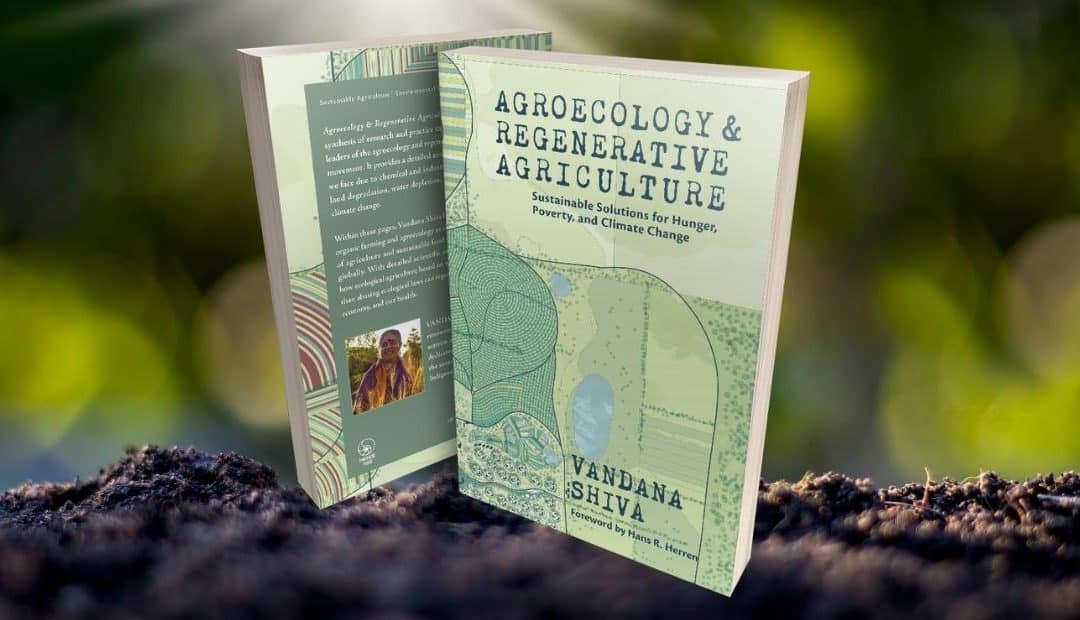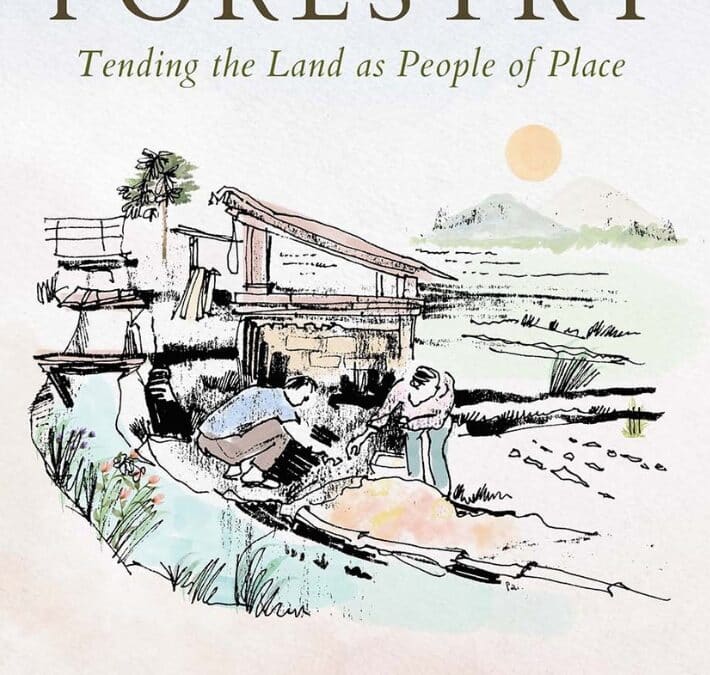
by Justin Mackey | April 25, 2023
Social Forestry: Tending the Land as People of Place is a must-have for anyone who wants a reciprocating relationship with their communities, themselves, and most importantly their awe-inspiring forests and landscapes.
Social Forestry connects villages and communities to their land and adjoining bodies of water. Concepts include forest management, protection, and regeneration of deforested lands with the objective of improving the rural, environmental, and social development. Through ecological assessment, carbon sequestration, and generating wildcrafts, people re-establish their wonder in the woods.
Author Tomi Hazel Vaarde, collaborator of Siskiyou Permaculture, uses poetry, photographs, drawings, and data to outline philosophies and concepts of Social Forestry. By weaving culturally sensitive stories, myths, and lessons from a range of customs and traditions including North American Indigenous communities and Vaarde’s own Quaker upbringing, Vaarde explores how holistic land and community management approaches can facilitate resolution of some of our most dire local and global crises. The writer’s work is critical to overcoming eco-grief while instilling necessary changes to the West Coast landscape for fire mitigation and restoration of complex forest systems for generations to come.
Many Indigenous peoples have learned regenerative management by living for generations in and with a sense of place, but few examples of whole-system planning and participation are evident in modern society. Climate adaptation, human survival, and the maintenance of biodiversity that supports life on Earth require radical, back-to-the-roots grounding and intentional dedication. Social Forestry helps readers remember the ways of the wild while implementing local food production, collaboration with conservation efforts, forest management, and stabilization of headwaters to build resilience for the long term. To live in harmony with our surroundings, we need to re-skill, always remembering those who came before us and acting in ways that honor traditional wisdom of people and place.
by Justin Mackey | November 8, 2022
Home eBook & Audiobook Access Instructions If your order contains Audiobooks and/or eBooks you should use the Glassboxx app on your iOS or Android phone or tablet, or for desktop, please use the browser reader: https://reader.glassboxx.com/ to listen to or read...
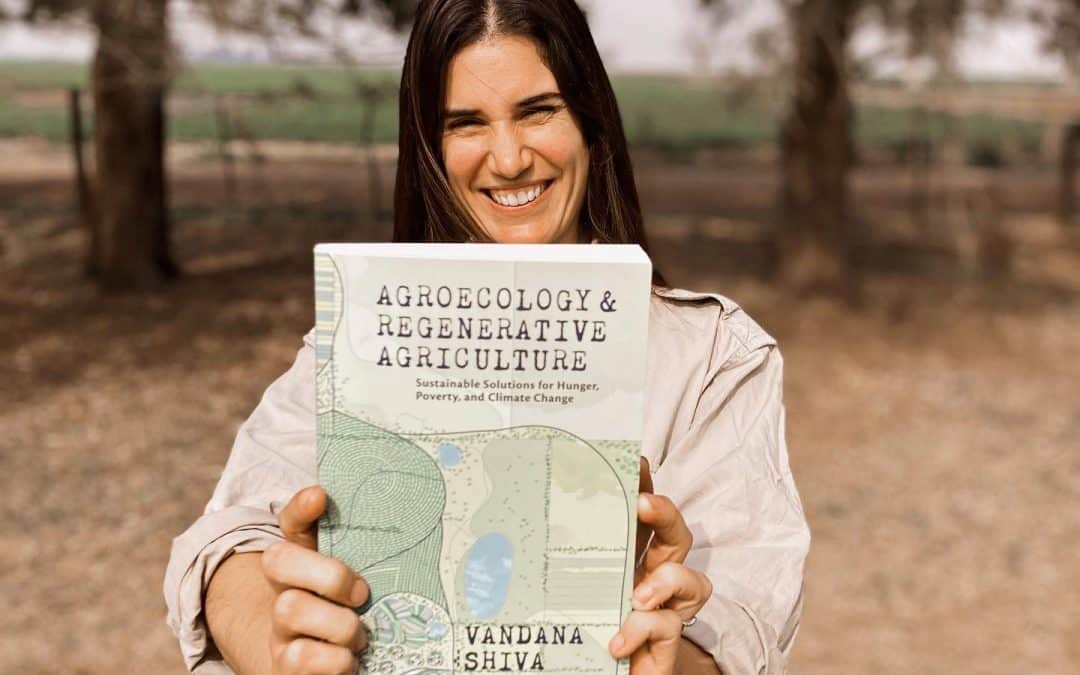
by Leticia Pascual | October 17, 2022 | Sustainability & Ecology
I was honored to have my artwork featured as the cover design for the inspiring ecofeminist and environmental activist, Vandana Shiva’s, recent book Agroecology and Regenerative Agriculture: Sustainable Solutions for Hunger, Poverty, and Climate Change, published by...
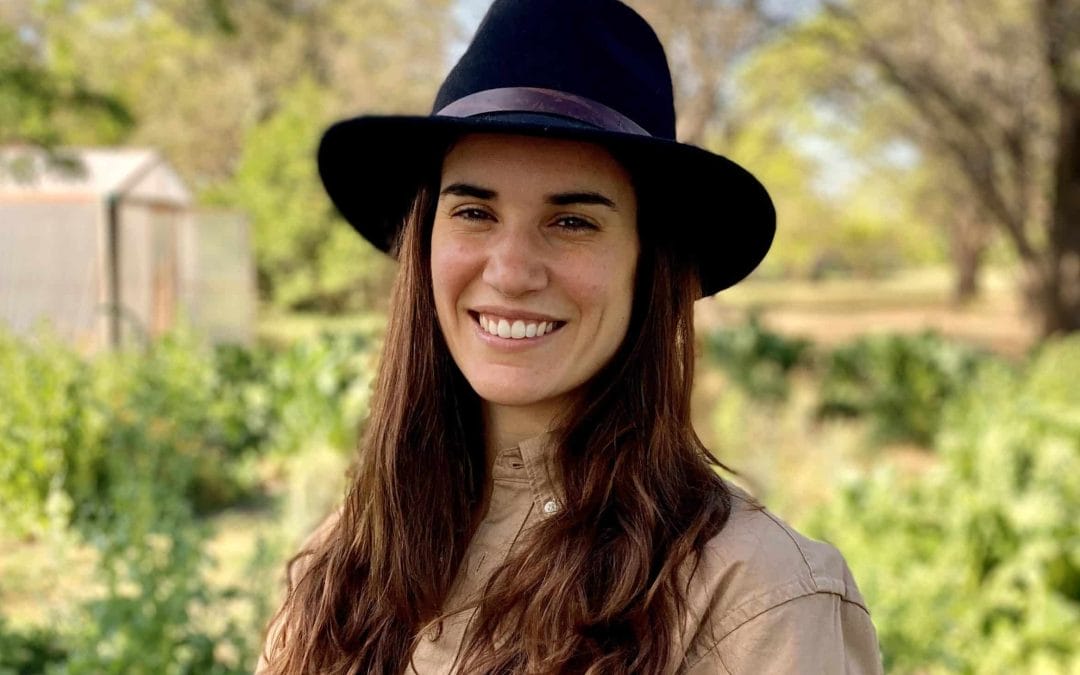
by Jasmine Virdi | October 17, 2022
Leticia Pascual was born and raised in a small town in the province of Buenos Aires. A former professional dancer, she danced for 10 years in the Tango and Folklore Academy. She holds a Bachelor’s in Architecture from the University of Buenos Aires and a Master’s in Architecture and Urban Planning at the Universitario Politecnico di Milano, Italy. Her Master’s thesis was closely linked to the environmental impacts generated by the intensive growth of agribusiness in Argentina, and the proposal of sustainable transitions. Inspired by her research, she now runs an agroecology project outside of Buenos Aires, Del Plato Huerta, together with her husband, Tomí.

by Jasmine Virdi | October 13, 2022 | Present & Past Events
City Lights and Synergetic Press celebrate the publication of Jerry Mander’s 70 Ads to Save the World: An Illustrated Memoir of Social Change. Moderated by Julie Lindow with appearances by Tom Butler, Annie Leonard, Carrie Pilto, Meenakshi Raman, and a video...
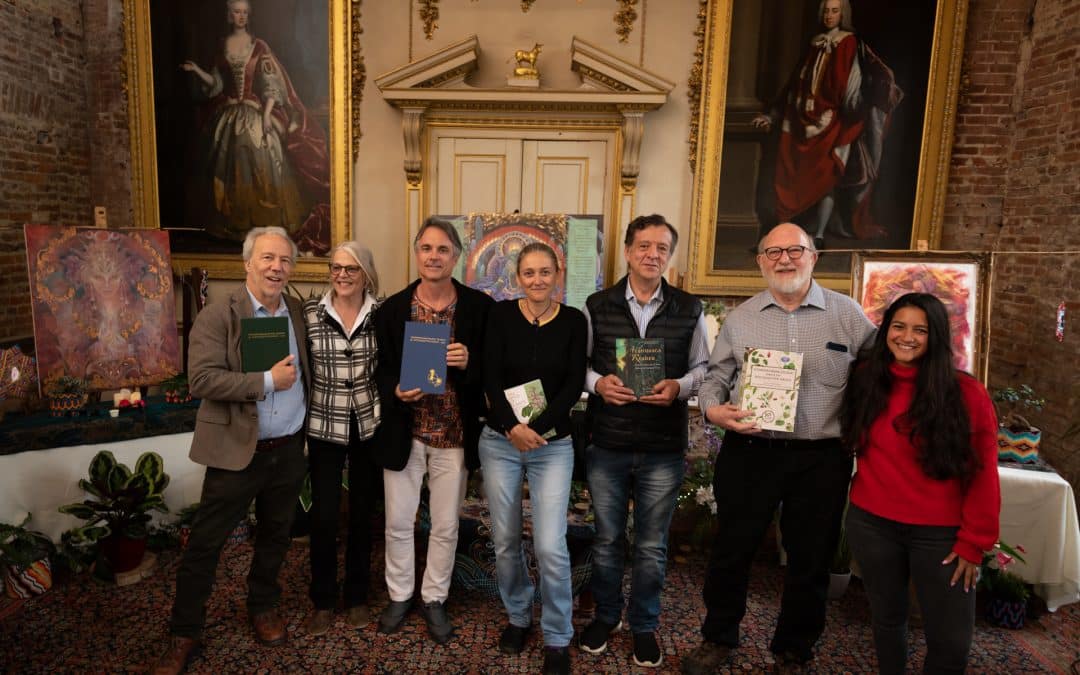
by Synergetic Press | June 24, 2022 | Consciousness & Psychedelics, Cultural Studies, Present & Past Events, Sustainability & Ecology
Last month, Synergetic Press was excited to attend the McKenna Academy’s Ethnopharmacologic Search for Psychoactive Drugs (ESPD55) Conference in St. Giles House, Dorset, UK. A beautiful and inspiring gathering that came as joyous relief for many after months of being...
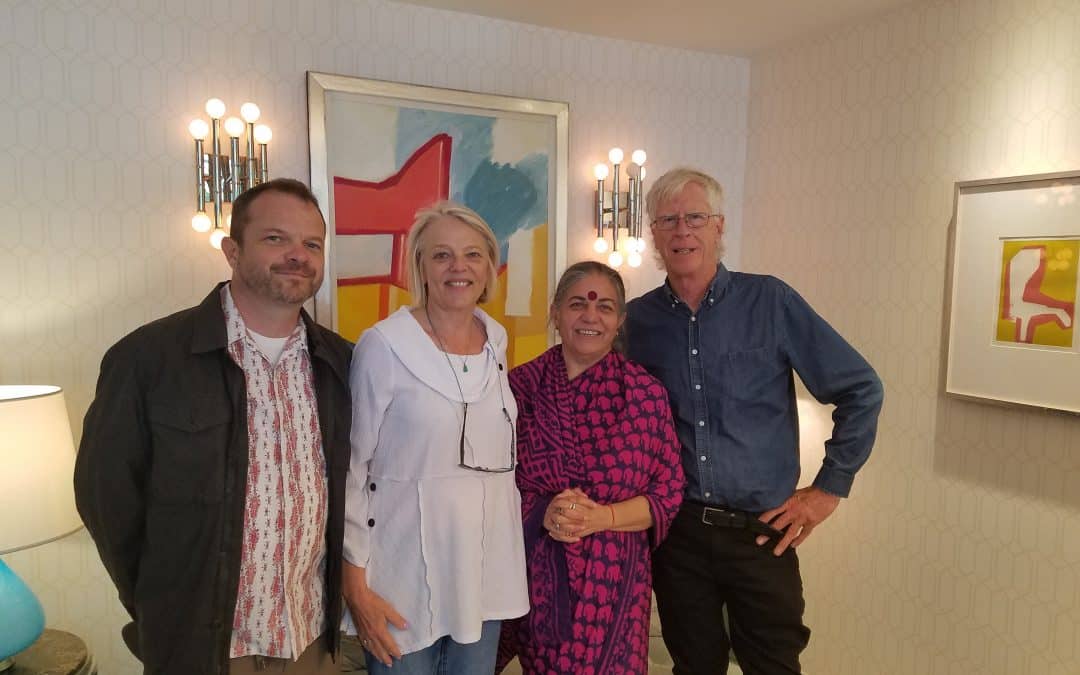
by Synergetic Press | May 24, 2022 | Consciousness & Psychedelics, Cultural Studies, Sustainability & Ecology
Michael “Goz” Gosney, Collaborator & Friend (July 11, 1954 – April 28, 2022) Beloved friend and Special Projects Associate at Synergetic Press, Michael “Goz” Gosney peacefully departed this world on April 28, 2022. Goz, as we called him, was a culture...
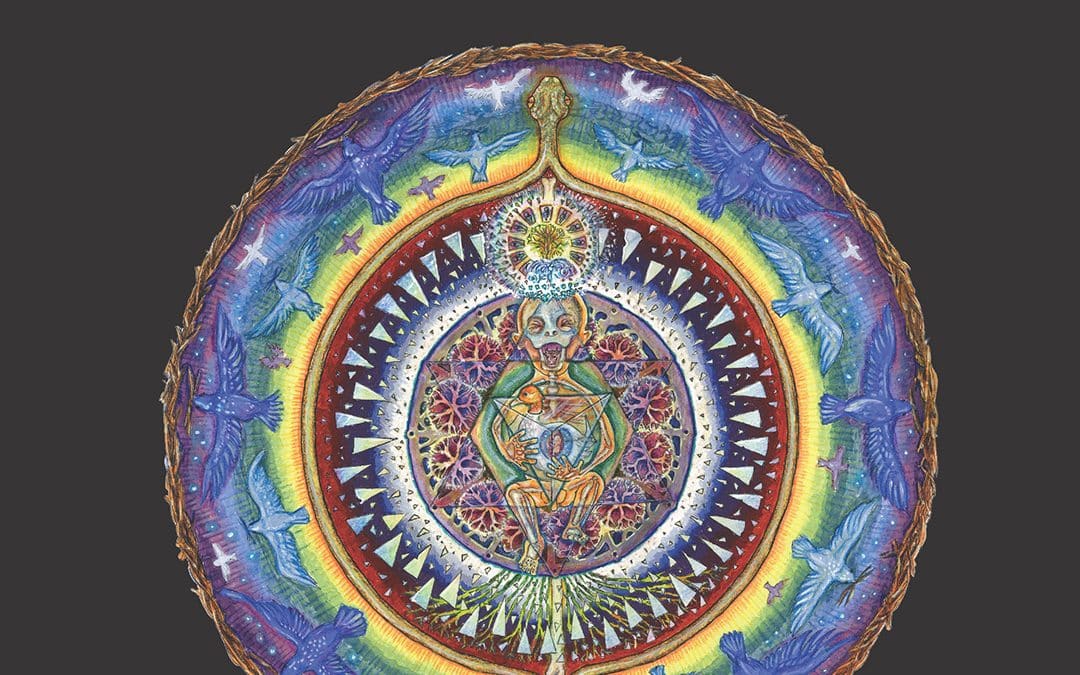
by Justin Mackey | August 23, 2022
Psychedelic Integration: Psychotherapy for Non-Ordinary States of Consciousness is a trailblazing guidebook for anyone interested in psychedelic-assisted therapy and integration.
When psychologist and psychotherapist Marc B. Aixalá began fielding questions from people around the world seeking help integrating their own psychedelic experiences, he couldn’t find a singular source of collected research and support. What began as an attempt to help others became Psychedelic Integration, a work that traces the evolution of psychedelic-assisted therapy and integration research from the 1960s to the present moment, explains therapeutic techniques and outlines a clinician’s real-world observations on the deep work of healing.
Written for practitioners and the generally curious, this book offers 11 metaphors for understanding integration and concisely explains the seven dimensions of integration, which Aixalá sees as part of a process inextricably linked to preparation and the psychedelic session experience.
Grounded in the idea that integration work serves two main objectives: maximizing the benefits of a psychedelic experience and dealing with adverse effects, Aixalá maintains that understanding why an individual seeks integration support can inform therapeutic techniques. Psychedelic Integration outlines foundational practices like rest and nutrition, spiritual approaches including water rituals and tarot, embodied techniques of dance and singing, and frameworks including Holotropic Breathwork, Gestalt therapy and integration circles.
The author acknowledges that psychedelic experiences can be difficult and even traumatic, and he confronts that reality with compassion. In this book, Aixalá shares stories and artwork created by some of his patients as they progressed through their own integration journeys.
Psychedelic Integration is an essential companion for practitioners, their patients, and those seeking integration work not as a solution but as a tool for self and collective discovery.
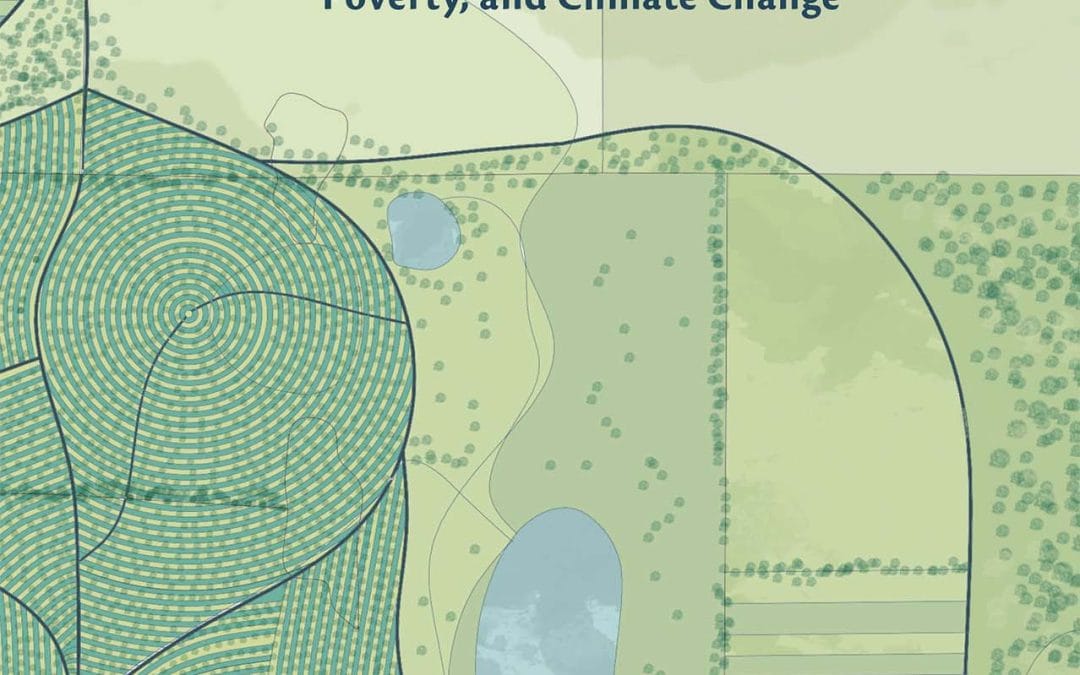
by Justin Mackey | April 19, 2022
A synthesis of more than three decades of interdisciplinary research and practice, Agroecology and Regenerative Agriculture: Sustainable Solutions for Hunger, Poverty, and Climate Change, provides evidence-based solutions to some of the world’s most pressing crises in global ecology, agriculture and public health.
Featuring the work of Navdanya, an organization founded by Dr. Vandana Shiva that promotes agroecology, seed freedom, and a vision of Earth Democracy that seeks justice for the Earth and all living beings, this work serves as a guidebook for agriculture scientists, policy makers, environmentalists and every individual who cares about their own health as well as the vitality of the planet.
Agroecology and Regenerative Agriculture, provides a detailed analysis of the multiple planetary dilemmas we face due to chemical and industrial agriculture, including land degradation, water depletion, biodiversity erosion, climate change, agrarian crises, and health crises while also focusing on practical and evidence-based solutions.
Those solutions include methods of using biodiversity-based organic farming to regenerate soil, conserve water, increase climate change resilience, and ensure food security in rural populations. As editor, Dr. Shiva takes an organized approach to these wide-ranging topics and provides practical knowledge that can inform the future of agriculture and sustainable food systems. With detailed scientific evidence, Agroecology and Regenerative Agriculture shows how an ecological agriculture based on working with nature can regenerate the planet, the rural economy and our health.






